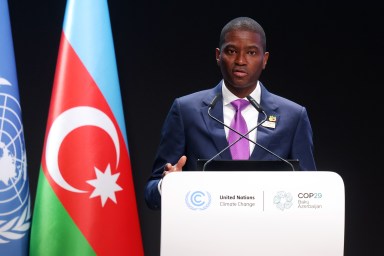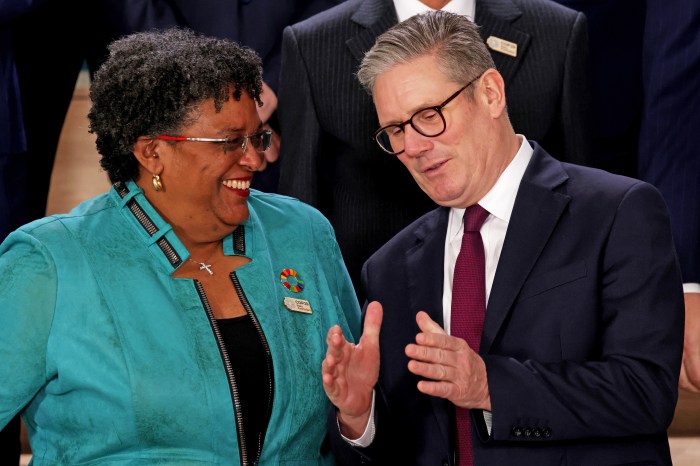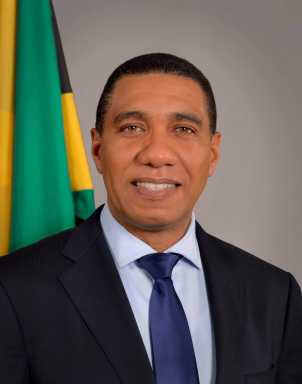Listeners:
Top listeners:
-
play_arrow
RadioJLR Just Press Play

This week’s flash floods, mudslides, and heavier-than-usual rains in the South and Eastern Caribbean allowed several Caribbean leaders attending the global annual climate change meeting in Azerbaijan to point to the devastation in Grenada and Trinidad as proof that the region is an unwilling victim of climate change and should receive climate finance from the developed world.
Grenadian Prime Minister and current Caribbean Community Chairman Dickon Mitchell argued that the region needs the money to prepare infrastructurally and otherwise for increasingly powerful storms affecting the area each year. “It is just testimony to what we are talking about. You can have high, unpredictable, and erratic, but also highly dangerous weather patterns that are significant that we have to prepare for and respond to. Again, we have to be doing our best in those circumstances to treat and manage with this on an ongoing basis. So, it’s just the new reality, the new norm that we have to live in,” Guardian Media in Trinidad quoted him as saying.
Antiguan Prime Minister Gaston Browne, who, along with colleagues from the Caribbean and climate-threatened Pacific islands, had last year successfully moved to an international tribunal to test whether polluters should be made to pay for their actions, demanded grant aid to help the region cope with worsening global weather and climate patterns. “To those who bear the greatest responsibility for climate change, I say this—the time for moral responsibility is now. The time for increased climate ambitions is now. If promises of support remain unfulfilled, justice must demand that those promises be enforced. “Every year of inaction compounds our vulnerability and deepens the injustice that we enjoy. We cannot wait any longer for empty pledges to become meaningful actions. For decades, wealthy nations pledged $100 billion annually to support vulnerable countries. Yet, these promises have largely gone unfulfilled. Now, as we discuss a new collective quantified goal, we again see proposals that complicate rather than commit.”
The region is well represented at this year’s edition of the COP meetings, motivated by a tough hurricane season which saw Hurricane Beryl, the earliest superstorm to have ever formed in July- as it battered Grenada, St. Vincent, and Jamaica, among others nations. The storm season incidentally begins in June. Several other hurricanes have also called on the region this year, causing severe devastation. As for Tuesday’s weather system, which formed quickly and caught weather services off guard, the leaders also asked the world to pay attention to the extent of climate change patterns, reiterating the need for financial assistance.

Prime Minister Mia Mottley of Barbados, widely regarded as the region’s top and most militant spokesperson on climate issues offered a mathematical construct that could help raise money for a climate fund for affected nations.
“If we put a $5 per ton on CO2 for fossil fuel extraction, we can raise $210 billion a year. If we put $100 per ton on CO2 for shipping, we can raise in excess of $80 billion a year, and we have not addressed aviation, or indeed, the elephant in the room, 0.1 % on all bonds and stocks that can raise us in excess of $400 billion. We must change the rules of the game, shock-proof vulnerable economies, and indeed, review debt sustainability while at the same time augmenting resources,” Mottley said.
The floods in Trinidad and Grenada caused severe damage to several parishes and killed at least one person, a woman found in a submerged car in Grenada. Several communities in south and east Trinidad remained underwater on Thursday, two days after a flash storm descended on the sub-region.
Similar posts
© 2025. All Rights Reserved by Radio-JLR



Post comments (0)